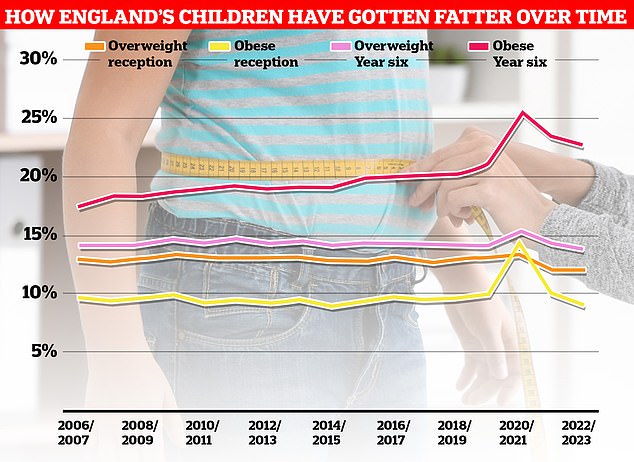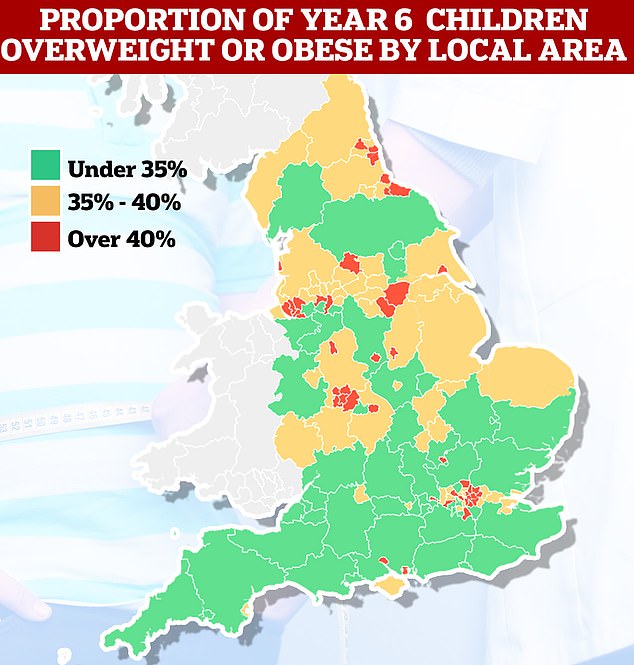Children in Africa are reportedly the healthiest globally, with a slight edge over those in Europe and a significant lead over those in the Americas.
This result is based on a combined analysis of data from 33 countries, which looked at the proportion of children aged three to five who are receiving adequate amounts of physical activity, sleep, and time spent away from computer, television, or smartphone screens.
While Europe, including the UK, found that more than half of children are meeting their exercise needs, statistics specific to Britain reveal that only about one in ten children are actually meeting the recommended level of physical activity.
Youths from Africa achieved the highest overall score, with approximately one in four (23.9 percent) meeting the recommended levels for physical activity, screen time breaks, and sleep.
Europe ranked second, with 23.5 percent of children achieving this milestone.

The Americas, encompassing both North American countries, such as the US, as well as those in South America, had the lowest performance, with fewer than one in ten (7.7 per cent) achieving this level of health.
Children in this region spent most of their time sitting still, with only 17 percent taking regular breaks, the lowest proportion in the analyzed regions, and this was measured using screen time as an indicator.
Securing the second-lowest ranking in overall performance were children from South-East Asia, such as those in Thailand and Indonesia, (9.1 percent), and those in countries of the Western Pacific, including Australia and New Zealand (12.4 percent).
A study was conducted by a team of international experts, led by a group from the University of Wollongong in Australia.
They examined data from approximately 7,000 children from 33 countries, aged between three and nearly five years old, collected between 2008 and 2022.
The physical activity levels of children were recorded using wearable activity trackers, and their screen time and sleep patterns were reported by their parents.
Experts then examined how many children were meeting the World Health Organization's guidelines for child health across different global regions.
For exercise, this involves spending at least three hours a day in physical activity, of which one hour should be moderate-to-vigorous, such as running. There are guidelines that the NHS also adheres to.
The World Health Organization's recommended daily screen time for children is limited to one hour, and it is also suggested that young children should aim for 10 to 13 hours of sleep each day.
British children are significantly lagging behind their peers when it comes to physical activity.
This data revealed that 30% of girls and 18% of boys in England are inactive across all age groups surveyed, whereas in Wales, the figures stand at 27% for girls and 17% for boys.
In Scotland, 21 percent of girls are inactive, alongside 12 percent of boys.
For comparison, the overall World Health Organization European region result for physical activity in the latest analysis was 53.5 percent, which ranks in the middle of the six regions analyzed.
In North and South America, the combined results show that a nearly three-quarters (72.8 percent) of children meet the daily exercise requirement.
Overall, the results were alarming, with fewer than one in six children (14.3 percent) worldwide meeting all three recommendations, according to the analysis.
Girls fare even more poorly, with only 12.8 percent meeting the recommended standards, while 16.8 percent of boys achieve this benchmark.

Girls generally appeared to fall short in meeting exercise requirements. Worldwide, fewer than half (41.7 percent) of girls met the daily exercise standards, whereas more than half (55.6 percent) of boys did.
The authors suggested that this might be because, in general, parents tend to give boys more freedom than girls to play with less supervision.
In general, the authors stated that the results, despite being constrained by factors such as sample size and the self-reported nature of screen use and sleep duration, were disturbing.
"Early childhood is considered a pivotal period for developing habits related to physical movement that are essential for maintaining good health and overall well-being throughout a person's life," they stated.
Our discovery of a relatively small number of children meeting the overall guidelines set by the World Health Organization across various countries and regions raises significant implications for the future health of the population unless further measures are taken to address this issue.
Regular physical activity has been widely recognized as a key factor in maintaining both physical and mental well-being, and in the long run, can help prevent various health issues, including obesity.
The latest data on childhood obesity in England reveals that one in 10 children are already overweight when they begin primary school, with this number increasing to about one in four by the time they reach Year 6.

Experts have
The authors observed the poorest results on screen and attributed this to the higher prevalence of digital device ownership in the Americas.
They pointed out that recent studies on parents' opinions about children's screen time have shown that many view devices as a necessity in today's technological age and often use them as a distraction or a reward for kids.
The authors emphasized the significance of educating parents on the responsible use of screens and setting limits for children's technology use.
.
Read more